Świdnica Peace Church
This centuries-old wooden wonder was built in less than a year and is one of Europe's largest timber-framed churches.
Świdnica’s gorgeous Peace Church is the largest of three such dazzlingly lovely structures to have been meticulously built in 1650s Silesia.
In a reluctant act of religious tolerance, the Catholic Holy Roman Emperor grudgingly allowed Protestant Lutherans to build a church in his Duchy of Świdnica. He stipulated that it should have no spire, no bells, and be made from wood, sand, mud, and straw. In a final petulant twist to limit the church’s eventual appeal, he decreed that construction should be completed within a year.
Acting within the terms of the treaty that his empire had accepted (known as “The Peace of Westphalia”), the devoutly Catholic Emperor also ordered the Lutherans to build their wooden church outside the city walls, away from existing Catholic churches.
Undeterred by these tough restrictions, the newly tolerated Lutherans of Świdnica hired an engineer from Wrocław named Albrecht von Säbisch and a carpenter by the name of Andreas Kaemper, who quickly created the undeniably beautiful Peace Church. Construction started in August 1656, and worshippers were congregating for services by the following June.
With an area of 1,300 square yards, and rising to a height of more than 50 feet, the beautifully decorated, cathedral-like church can accommodate up to 7,500 worshippers on three stupefyingly ornate tiers that surround the main aisle. The time-worn and age-warped Peace Church takes its unusual name from the international peace treaty that ultimately paved the way for its creation.
Głogów’s Peace Church was destroyed by a fire in 1758—sadly an ever-present risk for wooden buildings. A third, slightly smaller Peace Church survives in nearby Jawor. Together, the two remaining Polish Peace Churches were added to the UNESCO world heritage list in 2001.
Know Before You Go
Although built outside the boundary of the old mediaeval town, the Peace Church is located a short walk from Swidnica's City Square. Being an active place of worship, there is no entrance fee; however, a donation toward the upkeep of the historic building is invited, and of course, appreciated.

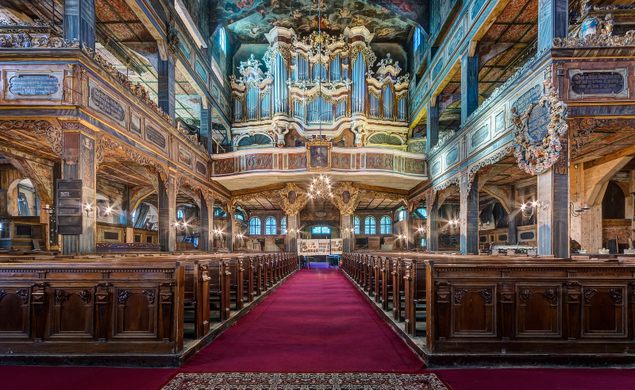


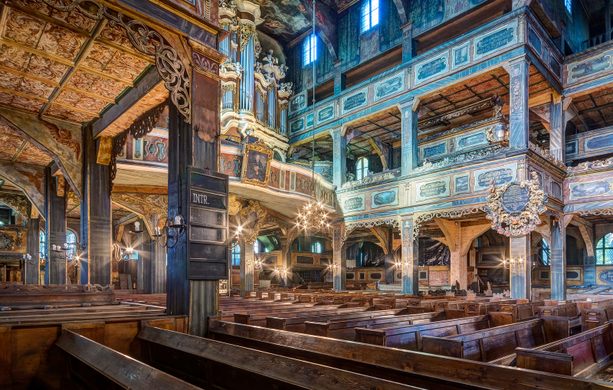




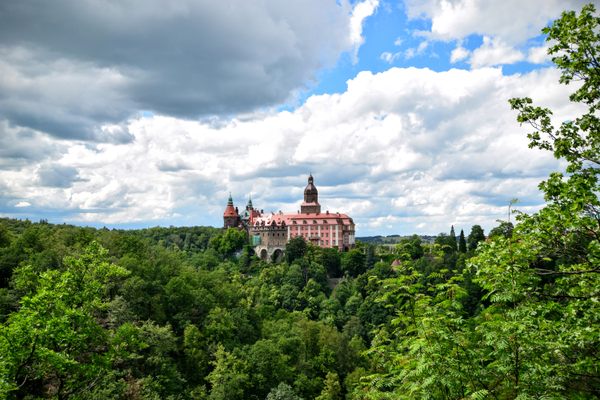

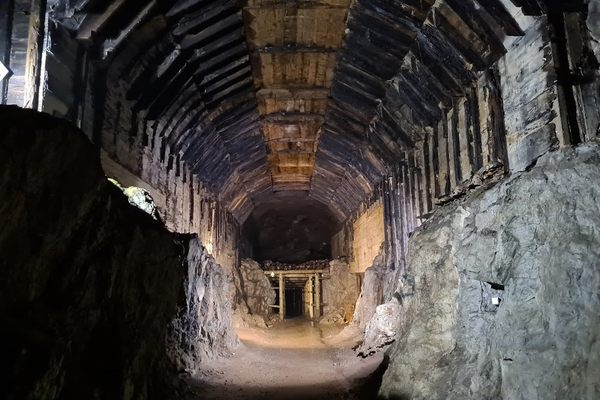

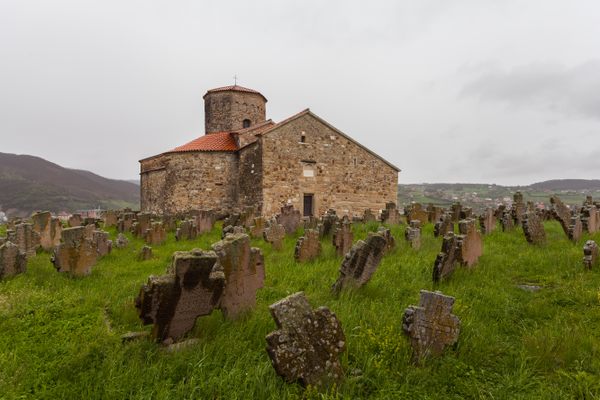

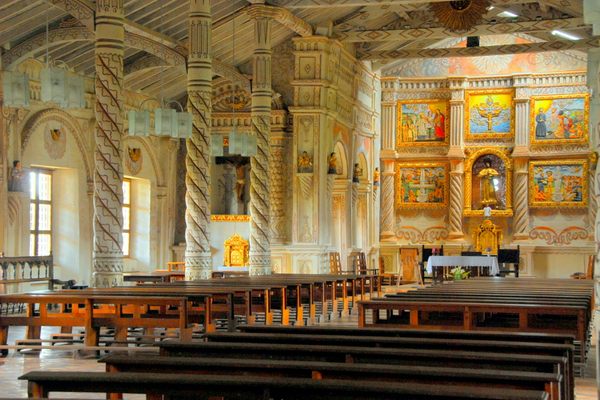
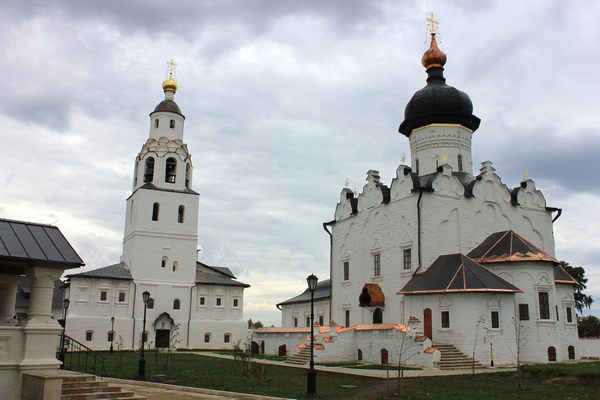

Follow us on Twitter to get the latest on the world's hidden wonders.
Like us on Facebook to get the latest on the world's hidden wonders.
Follow us on Twitter Like us on Facebook